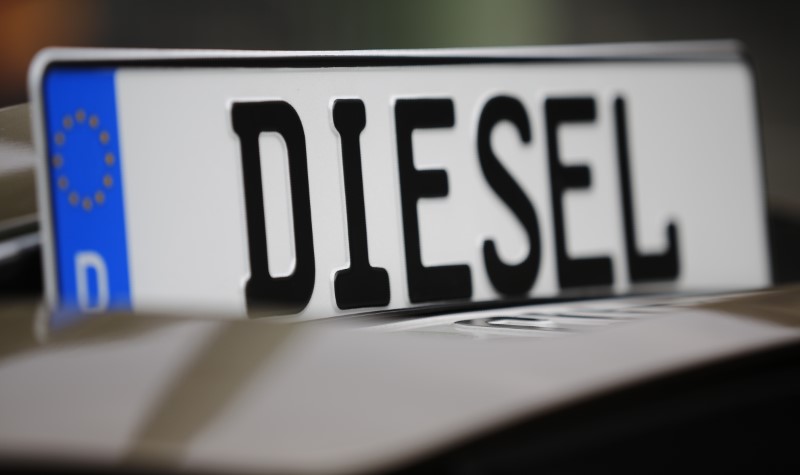
FILE PHOTO – Protests against Germany’s “Dieselgate” in front of Germany’s Federal Ministry of Transport and Digital Infrastructure where ministers and car executives hold a meeting to agree ways to cut inner-city pollution to try to stave off bans on diesel cars and restore the tarnished reputation of the country’s auto industry in Berlin, Germany, August 2, 2017. REUTERS/Hannibal Hanschke
February 22, 2018
FRANKFURT (Reuters) – Germany’s highest administrative court in Leipzig will on Thursday decide the fate of 15 million diesel vehicles in the country when it rules on whether cities in Europe’s largest car market can ban heavily polluting cars.
Diesel-engine cars have been in the spotlight since Volkswagen <VOWG_p.DE> in 2015 admitted to cheating exhaust tests, triggering a regulatory and legal backlash against diesel emissions, which contain particulate matter and nitrogen oxide (NOx) and are known to cause respiratory disease.
Environmental group DUH has sued Stuttgart in Germany’s carmaking heartland, and Duesseldorf over levels of particulate matter exceeding European Union limits.
The German states have appealed against the decisions, leaving Germany’s federal administrative court in Leipzig to rule on whether such bans are legal.
Environmental groups say levels of particulate matter exceed the EU threshold in at least 90 German towns and cities.
Carmakers have sought to avert a total ban with an agreement to overhaul engine management software on 5.3 million diesel cars as a way to clean up German cities.
Environmental groups have called software updates insufficient and have lobbied for cars with Euro-6 and Euro-5 emissions standards to receive hardware updates of their exhaust treatment systems.
German auto safety group ADAC said that hardware retrofits of Euro-5 vehicles cost between 1,400 and 3,300 euros and can cut diesel pollution by up to 70 percent.
Retrofits would prove extremely costly for carmakers and an outright diesel ban could trigger a fall in vehicle resale prices, also known as residuals, which are used as a benchmark for pricing leasing and finance contracts.
“The decline in diesel residuals toward the end of 2017 showed a clear acceleration, ending the year at 52.6 percent, having started the year at 56 percent,” analysts at Evercore ISI said in a note on Wednesday.
Evercore ISI forecasts a 5 percent fall in diesel residual values could result in a drop of 1.6 billion euros ($2 billion) in operating profit across eight European and U.S. carmakers.
(Reporting by Edward Taylor; Editing by Ludwig Burger and Jane Merriman)

